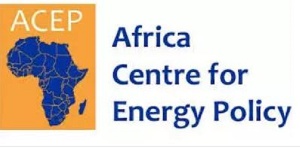Based on the average price prediction of US$40 per barrel for crude oil in 2020, Ghana could realize US$743 million from crude oil sales this year, the African Centre for Energy Policy has projected.
This is against the expected US$1.567 billion, anchored on a price prediction of US$62.61 per barrel, according to the 2020 Budget.
The shortfall is about 53% and is expected to affect the fiscal economy significantly [physical infrastructure and debt servicing].
Ghana’s infrastructure development programme is heavily dependent on oil revenues; about 80% of government’s domestic revenue for its capital budget is to be sourced from the Annual Budget Funding Amount (ABFA).
In its analysis of the implications of COVID-19 on oil producing countries, ACEP said its estimates shows that the maximum allocation to the ABFA for the year in line with the Petroleum Revenue Management Act (PRMA) will significantly drop from US$761 million to about US$273 million. This will represent a shortfall of about 64%.
This shortfall of US$488 million it said cannot be smoothened by the Ghana Stabilisation Fund (GSF) established by the PRMA.
At a standing balance of US$300 million, the maximum withdrawal from the GSF compliant with the PRMA will be about US$243 million, it explained.
Government’s projected transfers into GSF in 2020 is US$228 million. Given that GSF is capped at US$300 million, ACEP said the US$228 million would have been excess over the cap and available for debt service and/or contingency, in compliance with the PRMA.
“Over the years, excess over the cap has been used largely for debt service which indicates that the US$228 million, which is about 5.7% of the programmed expenditure for interest payment in 2020, will not be available for debt service”, it said.
ACEP in this regard made recommendations such as governments ensuring the transmission of the lower oil price to support industry and consumers of petroleum products.
Click to view details



Business News of Monday, 23 March 2020
Source: classfmonline.com

















